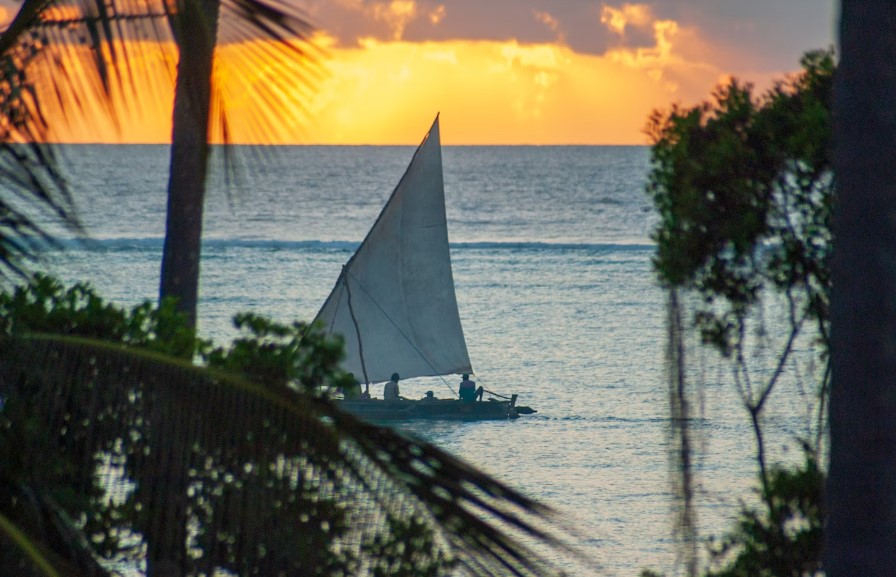When it comes to protecting yourself against malaria, there are several options available.
Two of the most commonly used antimalarial drugs are:
- Malarone (Atovaquone:Proguanil)
- Doxycycline
While other antimalarial medications remain available, including mefloquine (Lariam) and chloroquine, these are no longer the preferred treatment options for most travelers. Physicians generally avoid them because of higher rates of side effects, such as vivid dreams, anxiety, or neuropsychiatric reactions with mefloquine, alongside a reduced effectiveness in many parts of the world due to drug resistance. Current travel health guidelines consistently recommend Malarone, and in some instances Doxycycline, as the first-line choices for their strong safety profiles, reliable protection against resistant strains, and ease of use.
In this article, we’ll compare these two options – to help you stay informed on the medications you may be prescribed by a physician.
Antimalarial Medication Overview
Importance of Antimalarial Meds
Antimalarials play a crucial role in preventing malaria, a life-threatening disease spread by mosquitoes.
These medications work by killing the malaria parasite at different stages of its life cycle in the human body – thereby helping to prevent infection or reduce the severity of the disease.
Commonly-Used Antimalarial Drugs
Doxycycline and Malarone (Atovaquone:Proguanil) are both prescription medications, but they work in slightly different ways to prevent malaria.
While a doctor will ultimately prescribe your medication, it is helpful to know how each one works. At Runway Health, all online consultations include chat based care between the traveler and physician, so you can receive personalized medical advice to make the best choice.
Doxycycline – A Closer Look
What to Know About Doxycycline
Doxycycline is an antibiotic that’s often prescribed for a variety of bacterial infections as well as malaria.
It works by inhibiting protein synthesis in the malaria parasite, which prevents it from growing and reproducing inside red blood cells.
Pros of Using Doxycycline for Travel
Like Malarone, Doxycycline can start providing protection against malaria as quickly as two days before travel.
With consistent use, it’s relatively effective for preventing malaria.
Cons of Using Doxycycline for Travel
While Doxycycline is effective, it does come with a few drawbacks.
- You’ll typically need to take it for 4 weeks after travel, which is much longer than Malarone (Atovaquone:Proguanil).
- Side effects such as upset stomach and sensitivity to sunlight can limit outdoor activities – which is not ideal for travelers looking to explore the great outdoors during their trips.
- It must be taken daily with food and plenty of water to reduce stomach irritation, which can be inconvenient on multi-stop or remote trips.
- Skipping doses or taking it without enough water can increase the risk of esophageal irritation or ulceration.
- Yeast infections may occur in some individuals due to changes in normal bacterial balance.
- Doxycycline can interact with antacids, iron supplements, and dairy products, requiring careful timing of meals and medications.
There are a few additional side effects that are discussed later in this article for travelers who want a complete overview before choosing a medication.
Malarone – A Closer Look
What to Know About Malarone (Atovaquone:Proguanil)
Malarone – a combination of Atovaquone and Proguanil – is another prescription medication used to prevent malaria.
Together, these two components attack the malaria parasite at multiple stages of its life cycle inside the human body. Atovaquone interferes with the parasite’s ability to generate energy within its mitochondria, while Proguanil disrupts the parasite’s ability to produce essential DNA by inhibiting the enzyme dihydrofolate reductase. This dual mechanism stops the parasite from reproducing and spreading in the liver and red blood cells, effectively preventing the disease from developing after an infected mosquito bite.
Pros of Using Malarone for Travel
Malarone (Atovaquone:Proguanil) is equally effective, and sometimes even more effective in areas with Doxycycline-resistant strains of the malaria parasite.
It’s often well-tolerated, with potentially fewer side effects than Doxycycline.
- It can be started just a few days before travel, and typically only needs to be taken daily during your trip and for 7 days after.
- It is generally well tolerated and tends to cause fewer side effects such as stomach upset, photosensitivity, or yeast infections compared to Doxycycline
- You can now get Malarone with an online prescription, shipped straight to your door (normally cheaper than in-person care).
- This removes the downsides of primary care and travel clinics – such as long appointment delays, pharmacy stockouts, and higher prices for consultation + prescription.
Cons of Using Malarone for Travel
If you choose to get Malarone (Atovaquone:Proguanil) using an in-person travel clinic (or regular primary care), the total costs can reach beyond $200.
However, with an online consultation, you can have your prescription shipped & delivered to your doorstep for much cheaper.
See price for online prescription with Runway →
Doxycycline vs Malarone – Which is More Effective?
Efficacy Comparison
Both Doxycycline and Malarone are highly effective at preventing malaria when taken properly.
However, Malarone may be slightly more effective in areas with Doxycycline-resistant strains of the malaria parasite.
Malarone vs. Doxycycline – Side Effects
When comparing the side effects of these two drugs, Malarone is often preferred – due to potentially milder and less-aggravating side effects while traveling.
Doxycycline can cause photosensitivity, which might not be ideal if you’re traveling to a sunny location. This can limit your activities and require you to take extra precautions to protect your skin from sun damage.
Some patients even report side effects like itching & rash, oral or vaginal thrush, and losing sense of taste with Doxycycline.
Which is Better for Travel – Doxycycline or Malarone?
Considering the lower risk of side effects, potentially higher efficacy against resistant strains, and the convenience of home delivery via Runway, Malarone is typically preferred by most travelers.
With Malarone (Atovaquone:Proguanil), you’ll typically only need to take it for 7 days after travel. Doxycycline will typically need to be taken for 4 weeks after travel, which you may find unpleasant.
When comparing the two most common antimalarial options, most travelers and physicians tend to favor Malarone (Atovaquone/Proguanil) because of its lower risk of side effects, strong track record of effectiveness against resistant malaria strains, and the convenience of modern access through online services such as Runway. Malarone is easy to start just a couple of days before departure and only needs to be continued for seven days after returning home, which makes it far less burdensome for travelers who prefer a short post-trip medication schedule.
Doxycycline, while effective in many regions, requires a four-week course after travel, a commitment that some travelers find inconvenient. It also carries a higher likelihood of side effects such as photosensitivity, stomach irritation, and interactions with certain foods or supplements, all of which can complicate an active itinerary.
For travelers who want a simple regimen, fewer dietary restrictions, and reliable protection in areas with documented drug resistance, Malarone is generally the preferred choice.
Final thoughts
Both Doxycycline and Malarone are effective options for preventing malaria during travel.
Malarone has fewer side effects and can be more convenient, particularly with the option to get it delivered directly to your door, at a cheaper cost.
Always consult with a healthcare provider to choose the best antimalarial medication for your needs. Safe travels!

